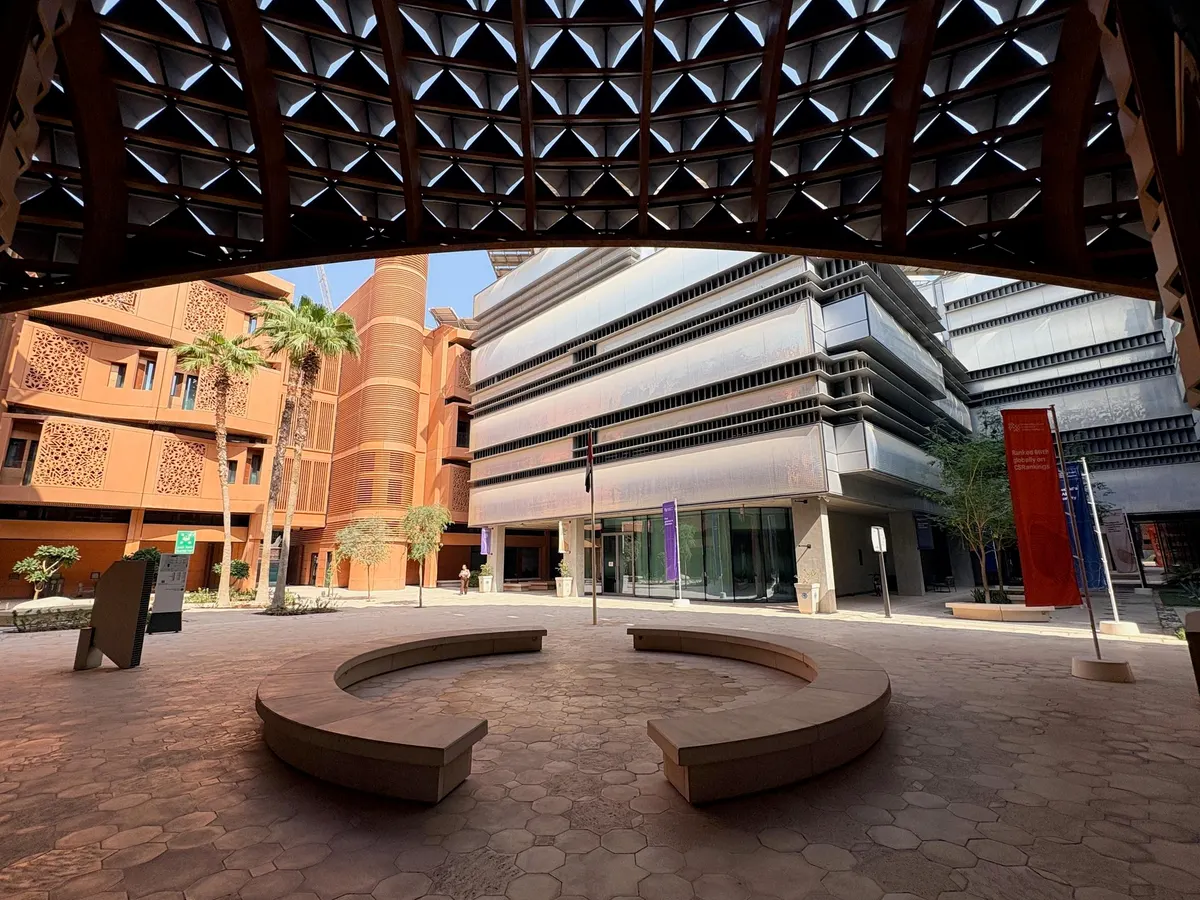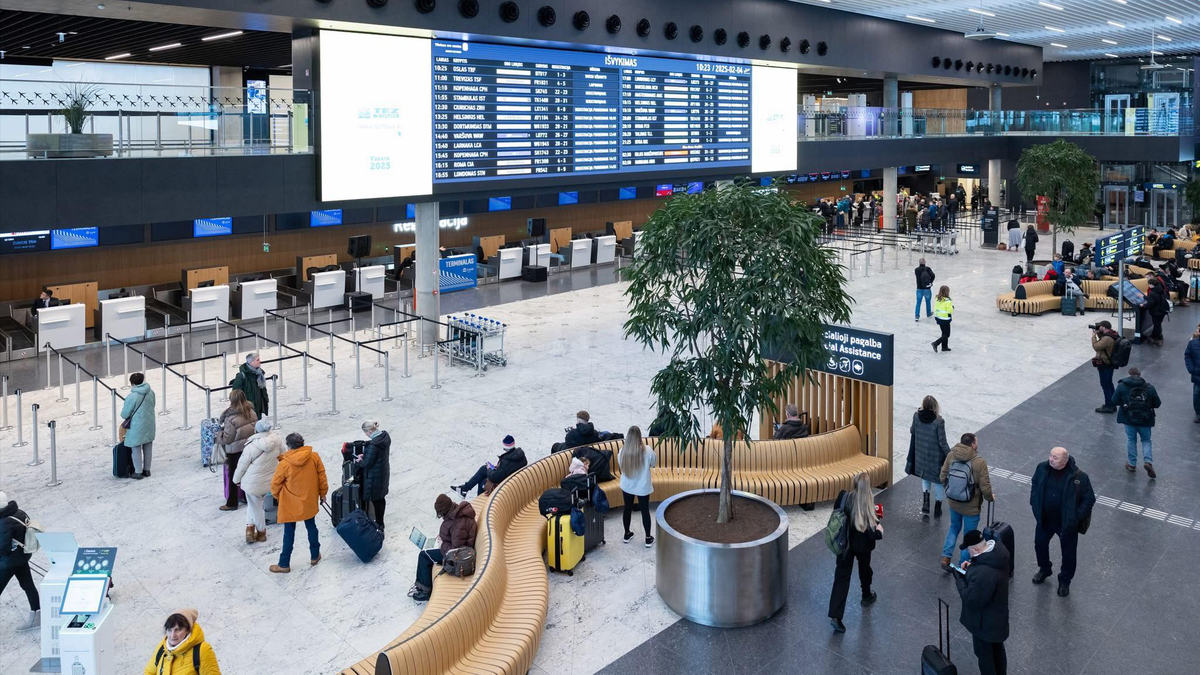Copyright forbes

Central part of the MBZUA campus in Mazdar City, Abu Dhabi Bryan Penprase The Mohamed bin Zayed University of Artificial Intelligence (MBZUAI) is building global talent in AI to help solve some of the most important global challenges. MBZUAI was founded in 2019 in Masdar City, Abu Dhabi, as the world’s first university dedicated entirely to the advancement of science through artificial intelligence. MBZUAI is led by its founding president, Professor Eric Xing, who joined the university in 2021, after a distinguished career as professor at Carnegie Mellon University, where he founded the Center for Machine Learning and Health at the University of Pittsburgh Medical Center. MBZUAI’s Provost, Timothy Baldwin, who continues to hold a position at The University of Melbourne, is leading the institution’s plans to grow from eight departments to over 20 and expand its faculty from 84 to 300 by 2030. Baldwin came to MBZUAI after 17 years as a professor in Australia to help create one of only a few dedicated departments of natural language processing in the world. He was drawn by the “once-in-a-lifetime opportunity to build a university largely from scratch” and also by the founding president, Eric Xing, whom Baldwin describes as a “very big name in AI.” Using AI to benefit the Global South MBZUAI is ranked among the top 10 globally for AI, computer vision, machine learning, natural language processing, robotics, and computational biology, according to CSRankings. In September, MBZUAI’s Institute of Foundation Models in partnership with G42 launched K2 Think, a leading open-source foundation model for advanced reasoning. It builds on a growing family of UAE-developed models including Jais, the world’s leading Arabic LLM, NANDA (Hindi), and SHERKALA (Kazakh). MBZUAI is “developing major language models for Kazakh and Hindi and languages of Indonesia and Southeast Asia, languages of Africa - the sorts of things that big tech is not going to invest heavily in because it's not sort of as commercially relevant to them” says Baldwin, adding that “there are incredible opportunities to really make a difference with AI.” Baldwin notes that “the breadth of background of our students is absolutely breathtaking,” and that “it’s an incredible resource to have at our fingertips to be able to involve students from Kazakhstan, Ghana and Indonesia in projects involving the Global South.” This global diversity allows MBZUAI to “get into local language communities,” and “do that community building and meaningfully engage and with them in terms of what’s actually needed.” Baldwin cites projects such as forecasting weather and climate change in Sub-Saharan Africa, helping farmers adapt to extreme weather, and using AI to help with remote healthcare in remote regions of Indonesia or Pakistan as examples of AI benefitting the Global South. MORE FOR YOU Most recently, MBZUAI hosted the first cohort of Agricultural Innovation Mechanism for Scale (AIM for Scale), a collaboration of researchers from MBZUAI and the University of Chicago working to ensure that governments in low- and middle-income countries can adopt AI weather models and build world-class national services. Participants were from Bangladesh, Chile, Ethiopia, Kenya and Nigeria. UAE’s Vision for AI and Building a Future Workforce The university is named after His Highness Sheikh Mohamed bin Zayed Al Nahyan, President of the UAE and Ruler of Abu Dhabi, who has long been committed to building UAE's human capital through new educational ventures such as MBZUAI. MBZUAI is a key part of the UAE National Strategy for AI 2031 to make UAE a hub for international AI innovation, so that AI can provide an estimated 335 billion AED or 20% of UAE's non-oil-based GDP by 2031. UAE is building a new data center named Stargate UAE in partnership with OpenAI, Oracle, Nvidia, and Japan’s SoftBank with over 1000 servers and as many as 100,000 NVIDIA chips, creating one of the world’s largest data centers, requiring 1 Gigawatt of power. Baldwin notes that being part of MBZUAI includes “the opportunity to sit around the table with senior government leaders” and “work hand in hand as part of this incredible vision that they have.” MBZUAI’s MS Degrees and New Undergraduate Program MBZUAI offers seven Master of Science degree programs in Computer Vision, Machine Learning, Natural Language Processing, Robotics, Computer Science, Statistics and Data Science and Applied Artificial Intelligence. It also offers Ph.D. programs in select areas including Computer Vision, Machine Learning, Natural Language Processing, Robotics, Computer Science and Statistics and Data Science. In 2025, MBZUAI launched its new undergraduate program in Artificial Intelligence, in the form of a Bachelor of Science in Artificial Intelligence with two specializations, one in Engineering and one in Business. The undergraduate program is built around a core in AI and computer science, with cross-disciplinary training in Business, Finance, Industrial Design, Market Analysis, Management, and Communication, as well as humanities and liberal arts to train students in the ethical and human factors relating to AI. MBZUAI’s “co-pilot” educational model integrates AI into every part of the student's journey, with an emphasis on problem-solving skills and critical thinking. In the inaugural undergraduate class, 115 undergraduate students from dozens of countries have been recruited, including 25% of students from UAE. In the 2025 intake, MBZUAI admitted nearly 700 students across its degree programs, representing over 47 nationalities, with many graduate students holding degrees from the world's top computer science schools around the world. MBZUAI offers many hands-on learning opportunities, and undergraduate students will spend their final year in top AI companies and research labs in co-op work-study positions. This diverse group of students “do not all have English as their first language, but instead have the common language of maths, AI engineering, and coding,” says Baldwin. Preparing for The Jobs of Tomorrow MBZUAI is actively recruiting top student talent from around the world and provides full scholarships, stipends, housing, travel, and health benefits for its students. Baldwin describes how “the jobs of tomorrow are being shaped by AI today” and that the MBZUAI AI students will “learn with it, through it, and for it.” Hao Li, Professor of Computer Vision who is the Senior Director of MBZUAI’s Undergraduate Program and Director of MBZUAI’s Metaverse Center describes the approach to “put artificial intelligence first” as “absolutely genius.” The rapid pace of change in the field requires new approaches, however, and Li says that “this traditional way of thinking where the professor is the expert in one area and the students are going to learn this expertise doesn’t really apply in the current age.” This is because in AI “your expertise is very quickly going to be obsolete,” says Li, and therefore “we learn it together with the students, sometimes even from the students.” MBZUAI’s program requires students to go through the process of developing a startup, including a convincing startup pitch, “and the people who grade them are going to be real investors,” says Li, who notes that “we bring in major, very successful serial entrepreneurs, with amazing guest speakers” such as “a Nobel laureate as a guest speaker in one of the economics courses.” Because MBZUAI is developing its own AI models, students can learn “the nuances of developing one of these major models, and what it is to safeguard them,” says Baldwin. MBZUAI’s President, Eric Xing, pointed out in a recent statement that undergraduates “won't just be taught theory and programming” but instead “will graduate with a critical understanding of society and people, markets and the economy, and the practical experience and confidence to drive and lead AI initiative.” Professor Baldwin notes that the undergraduate program will develop deep understanding of general principles of AI through hands-on work so that when models advance, students can, “look under the hood and understand them.” The President of MBZUAI described in a recent interview how AI will create a dramatic new future and that “LLMs will eventually be able to provide satisfactory answers to anything describable through language” and that “the magnitude of AI-driven disruption mirrors that proceeding from the age of enlightenment.” Xing describes a future where humans will have a “symbiotic relationship with AI,” and MBZUAI is helping to build that future. Editorial StandardsReprints & Permissions



